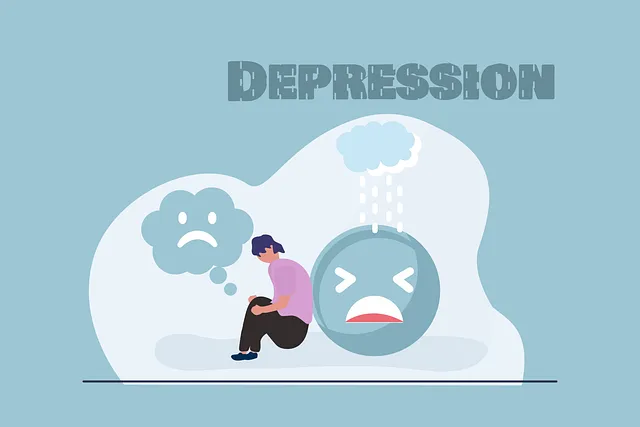The Boulder Kaiser Permanente Mental Health Facility adopts a holistic RFM (Resilience, Flexibility, Mastery) approach, combining mindfulness and cognitive behavioral therapy for effective crisis intervention. This strategy empowers patients to build resilience, navigate challenges, and foster emotional well-being. Designing engaging activities with cultural competency and personalized self-awareness exercises ensures inclusivity and active participation. Strategic planning, continuous improvement through staff training, and program assessment based on feedback refine the facility's initiatives, contributing to better mental health outcomes within the Boulder Kaiser Permanente network.
“At Boulder Kaiser Permanente Mental Health Facility, Resilient Factor Model (RFM) exercises have emerged as a powerful tool for fostering resilience among patients. This article explores the integration of RFM into the facility’s mental health services, offering a comprehensive guide to its implementation and impact. We delve into the design of effective resilience-building exercises tailored to the unique needs of the Boulder Kaiser Permanente community. Additionally, we provide strategic insights for successful program execution and continuous improvement, highlighting best practices for enhanced patient outcomes.”
- Understanding RFM and Its Role at Boulder Kaiser Permanente Mental Health Facility
- Designing Effective Resilience-Building Exercises for Optimal Impact
- Implementing RFM Programs: Strategies for Success and Continuous Improvement
Understanding RFM and Its Role at Boulder Kaiser Permanente Mental Health Facility

At Boulder Kaiser Permanente Mental Health Facility, RFM (Resilience, Flexibility, and Mastery) is understood as a multifaceted approach to mental health support that focuses on building individuals’ resilience to face challenges. This method helps patients navigate difficult situations with enhanced emotional well-being and improved coping mechanisms. By integrating RFM into their services, the facility offers effective crisis intervention guidance tailored to each patient’s unique needs.
The implementation of RFM strategies, such as mindfulness exercises and cognitive behavioral therapy, plays a pivotal role in promoting anxiety relief. Through these techniques, patients learn to manage stress, cultivate emotional awareness, and develop adaptive behaviors. As a result, they gain the tools necessary to thrive in demanding environments, ensuring better mental health outcomes and fostering a sense of resilience within the Boulder Kaiser Permanente community.
Designing Effective Resilience-Building Exercises for Optimal Impact

When designing resilience-building exercises for a mental health facility like Boulder Kaiser Permanente, the focus should be on creating engaging and impactful activities that cater to the unique needs of its clients. Effective exercises should foster self-awareness, promote healthy coping mechanisms, and enhance overall well-being. Incorporating diverse techniques such as mindfulness meditation, cognitive reframing, and stress management strategies can empower individuals to navigate challenges with resilience.
Cultural competency training for healthcare providers is integral to this process, ensuring that the exercises are inclusive and relevant to the diverse backgrounds of the clients. By integrating self-awareness exercises tailored to individual preferences and experiences, Boulder Kaiser Permanente can offer personalized support, fostering a sense of belonging and encouraging active participation in one’s mental health journey.
Implementing RFM Programs: Strategies for Success and Continuous Improvement

Implementing RFM (Resilience, Flexibility, and Mindfulness) programs at a mental health facility like Boulder Kaiser Permanente requires strategic planning and continuous improvement. One key strategy is to tailor the RFM curriculum to meet the unique needs of the population served. For instance, incorporating Empathy Building Strategies can foster stronger connections among peers, enhancing social support and resilience. Additionally, integrating Mindfulness Meditation techniques into daily routines can significantly reduce anxiety and promote calmness. Regular staff training and involvement are essential; they ensure consistent delivery and allow for tailoring based on individual client responses.
Continuous improvement involves assessing program effectiveness through qualitative and quantitative methods. This includes gathering feedback from clients and staff to identify what’s working and areas needing adjustment. By fostering an environment that encourages open communication, the mental health facility can continually refine its RFM initiatives, ultimately enhancing their ability to provide Anxiety Relief and improve overall well-being for all individuals involved.
The implementation of RFM (Resilience, Flexibility, and Mastery) programs at the Boulder Kaiser Permanente Mental Health Facility has shown promising results in enhancing patient well-being. By combining evidence-based resilience-building exercises with a tailored approach, the facility has created a unique and effective support system. This integrated model not only addresses the root causes of mental health challenges but also empowers individuals to navigate life’s complexities. With continuous improvement strategies, such as regular program evaluations and feedback from both patients and staff, Boulder Kaiser Permanente sets a standard for holistic mental health care, offering a resilient foundation for long-term well-being.






